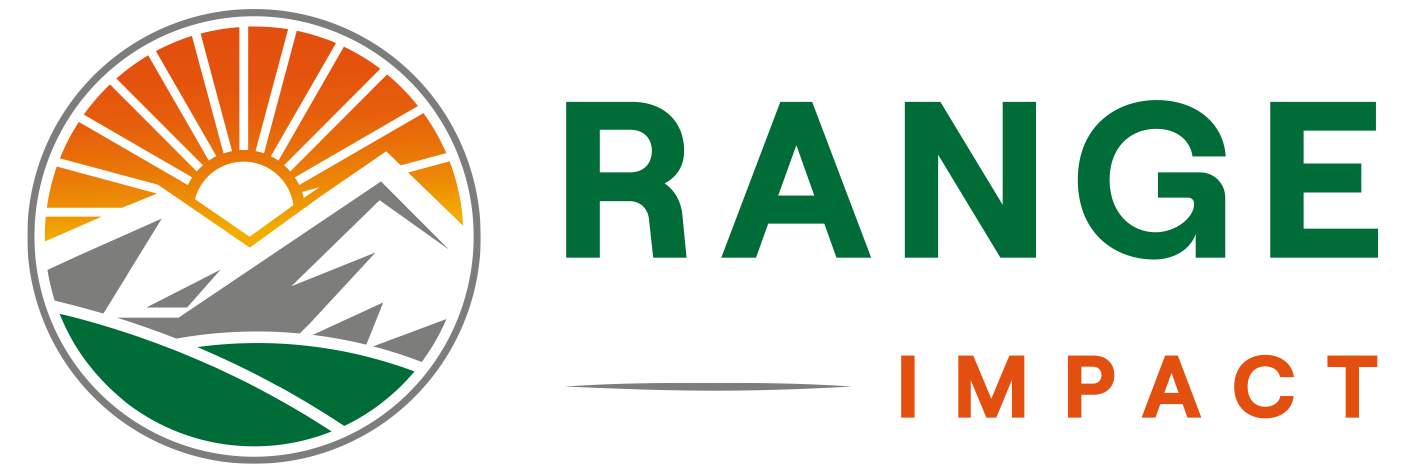To the Shareholders of Vitality Biopharma, Inc.:
In October 2018, Vitality raised $8.5 million of financing to advance its drug development program and acquire a Beverly Hills-based addiction clinic with the strategy of converting it into a cannabis-based treatment center for opioid dependent patients. Two weeks after the closing of this financing transaction and for reasons unrelated to that investment, the SEC entered an order temporarily suspending trading in Vitality’s common stock.
Shortly after entry of the SEC’s order, Edward Feighan, a former U.S. Congressman and seasoned executive with deep public company experience, and Richard Celeste, a former Ohio Governor with a distinguished career in public and private service, joined Vitality’s board to provide critical guidance to and oversight over the Company’s then-existing management team. I also joined the Vitality board, bringing over two decades of special situation investment and management experience to the Company.
By May 2019, almost seven months after the SEC’s trading suspension, Vitality’s cash balance had declined from $8.5 million to approximately $5.0 million. At around this time, Mr. Feighan replaced Avtar Dhillon as Chairman of the Board and I replaced Bobby Brooke as our CEO.
Cash is King
Cash to a company is like water to a plant. With it, a company can grow and prosper, and without it, its future is terminal.
In May 2019, Vitality had three lines of business: (i) a pre-revenue cannabinoid drug development business requiring significant cash investment, (ii) a newly-acquired addiction clinic transitioning to a cannabis-centered opioid recovery clinic that was unprofitable and lacking focus, and (iii) a small legacy medical test kit operation that was unprofitable and noncore.
Vitality had 36 employees on its payroll and a cash burn rate of over $500,000 per month. Based on this monthly cash burn rate and a cash balance of $5.0 million, our new management team had approximately 10 months of cash flow under then current operations before we would have been insolvent.
On top of this looming liquidity crisis, the new management team was faced with an on-going SEC private investigation and common stock with limited liquidity. A candid assessment of Vitality’s prognosis was bleak. Like a group of travelers preparing to cross a desert of unknown length with only one canteen of water, we knew we had to plan carefully in order to ensure Vitality survived.
The Recovery Plan
In developing our corporate recovery plan, our team identified three clear and actionable objectives: (i) resume the ordinary course trading of our shares, (ii) improve the balance sheet, and (iii) build value in our drug assets. All of our corporate resources were dedicated to these three objectives – if the business activity didn’t advance one of these three objectives, then we didn’t do it.
To execute this plan, we needed enough water in our canteen for the journey. During the new management team’s first week, we shut-down the unprofitable cannabis-based clinic operation and the non-core medical test kit business. The thirty employees involved in these two businesses were terminated and all contractual obligations settled. Additionally, our team employed a zero-budget approach to cash management – we assumed all expenses were extraneous and should be eliminated unless we could justify them as critical to accomplishing one of our three corporate objectives. As a result of this proactive approach to cash management, Vitality’s cash burn rate was dramatically reduced from $500,000 per month in May 2019 to approximately $100,000 per month by May 2021, providing us with additional cash and time to execute our corporate recovery plan.
(1) Resume Ordinary Course Trading
Our first corporate objective was to resume ordinary course trading of our common stock. We knew that this objective required us to first reach a successful resolution of the SEC investigation that was pending under prior management. Once onboard, our team fully cooperated with the SEC staff, and in May 2020, twelve months after the new management team joined the Company, we were advised that the SEC staff had concluded its investigation as to the Company and did not intend to recommend an enforcement action against us.
Next, our team worked closely with a broker-dealer who filed a Form 211 application with the Financial Industry Regulatory Authority (FINRA) to resume regular-course quotations and trading of our common stock. This application was approved in March 2021 whereupon broker-dealers were permitted to resume making quotations in Vitality’s common stock, and after 28 months of limited liquidity and no practical ability to raise new equity capital to fund operations, our common stock resumed trading in the ordinary course on the OTC marketplace.
Despite our exit from the grey market, the OTC Markets Group maintained its skull-and-crossbones “Caveat Emptor” warning symbol on Vitality’s common stock, a designation first attached to Vitality’s ticker symbol when the SEC suspended the trading of our common stock in November 2018. In May 2021, after two months of collaboration with the OTC Markets Group, the Caveat Emptor warning was removed.
Finally, our team has been working closely with a broker-dealer to become “DTC Eligible”, which should further enhance the overall liquidity and trading of Vitality’s common stock. We are confident this goal will be accomplished in the very near future.
(2) Improve the Balance Sheet
Our second corporate objective was to improve Vitality’s balance sheet in order to support the value creation phase of our corporate recovery plan.
On the asset side of the ledger, our team increased our cash position by approximately $550,000 through two initiatives: (i) a $96,988 Paycheck Protection Program loan, which was later forgiven in its entirety and (ii) the resolution of a dispute with one of our vendors pursuant to which we received $450,000.
On the liability side of the ledger, our team reduced our obligations by more than $1,050,000 through two initiatives: (i) over $750,000 of accounts payables settled for pennies-on-the-dollar and (ii) the write-off of an advance payable of $296,653 due to the expiration of the applicable statute of limitations.
For the fiscal year ended March 31, 2021, Vitality had a cash balance of $884,137 and liabilities of $0, excluding a $33,440 lease liability due from Vitality’s dissolved clinic subsidiary to its landlord.
As a result of these initiatives, we increased our assets by $550,000 and reduced our liabilities by more than $1,050,000, resulting in a total balance sheet improvement of over $1,600,000.
(3) Build Value in our Drug Assets
Our third corporate objective was to build value in our drug development assets. However, our team needed to balance the cash investment required to advance our drug development program with the liquidity needed to resume trading in the ordinary course. Therefore, our team funded specific research projects that we believe would generate the highest return on investment for our shareholders while leaving us with sufficient cash to resume ordinary course trading and improve the balance sheet.
In May 2020, our team filed a supplemental response letter with the U.S. Food and Drug Administration (FDA) for an Orphan Drug Designation for our VBX-100 prodrug for the treatment of pediatric ulcerative colitis. In
August 2020, we received a letter from the FDA informing us that it was unable to grant our request for an Orphan Drug Designation because our VBX-100 prodrug was administered both before and after colitis was induced in our in vivo mouse studies performed several years ago. The FDA recommended that we perform a new in vivo mouse study and administer our prodrug only after colitis was induced to develop efficacy data in support of our position that VBX- 100 may be effective as a treatment for colitis. Therefore, in May 2021, we engaged a third-party analytical firm to perform a treatment-only in vivo mouse study, which ultimately produced favorable data showing the efficacy of our VBX-100 prodrug in the treatment of colitis in mice. Armed with this positive scientific data, our team filed a supplemental response letter with the FDA in May 2021 in support of our position that VBX-100 may be effective as a treatment for pediatric ulcerative colitis. Our team anticipates receiving a response from the FDA by the end of August 2021.
In order to strengthen the protection and prosecution of our intellectual property, which is primarily our drug development patents and know-how, in August 2019 we engaged a nationally-recognized law firm with deep experience in assisting drug development clients such as Vitality with their intellectual property needs. In March 2020, Vitality filed a new international patent application entitled “Novel Cannabinoid Glycosides and Uses Thereof” that substantially expands upon our earlier patents by including additional novel THC and CBD-glycosides and commercial production strategies for these new molecules. In December 2020, we filed a provisional U.S. patent application entitled “Continuous Enzymatic Perfusion Reactor System” that describes our improved process for the efficient enzymatic glycosylation of hydrophobic small molecules, including cannabinoids.
Strategic Alternatives
As of the beginning of April 2020, Vitality had cash-on-hand of $2.3 million and the new management team was still actively working to accomplish all three of our corporate objectives. The SEC investigation had not yet been concluded nor had the Form 211 application been filed with FINRA. Given the uncertain timing and outcome of the SEC and FINRA processes, which directly impacted our ability to raise additional financing, our team decided to proactively explore strategic alternatives.
In May 2020, our team contacted several investment bankers and advisors to discuss a potential engagement to assist Vitality with an evaluation of strategic alternatives. In September 2020, Vitality announced the retention of DelMorgan & Co., an internationally recognized investment banking firm, to advise us on strategic alternatives. We selectedDelMorganbasedon,amongotherreasons,theirlargefirmsize,talentedteamandindustryexperience. Since September 2020, DelMorgan has conducted an extensive marketing process to prospective financing sources, strategic partners and potential acquirers, and our management team has had discussions with several interested parties. To date, Vitality has been unable to consummate a strategic transaction that in our judgment provides fair value to the Company’s shareholders. We continue to work with DelMorgan in exploring strategic transactions which can maximize shareholder value.
The Future
Vitality, as an early-stage cannabinoid drug development company, has been pursuing a high-risk, high- reward drug development strategy with the availability of funds determining the pace of progress. Over the next several months, Vitality will continue to evaluate strategic alternatives, including asset sales or new financings, with the goal of maximizing the value of our cannabinoid drug development assets.
Additionally, we are expanding Vitality’s corporate strategy to include the acquisition and development of a diversified portfolio of revenue-generating special situation assets with attractive risk-return profiles capable of creating long-term sustainable value for our shareholders. Our team is seeking special situation investment opportunities that have positive environmental, social and governance impacts – a now well-known strategy called ESG Investing. Our executive team has long believed – well before the strategy was in vogue – that investing in environmentally and socially-conscious businesses can generate strong investment returns and positively impact society. Under our expanded strategy, Vitality would be “reborn” as a publicly-traded platform of revenue-generating ESG investments for like-minded investors who are looking to make a meaningful social impact and do well by doing good.
Fundamental to our expanded corporate strategy is the application of creativity, innovation and technology- based solutions embedded within the value creation plans of our operating businesses, particularly ideas that support scalability, efficiencies and data capture, analysis and use. Specifically, our team is exploring several strategies that exploit the advantages of blockchain technology, plus products and services that address the damaging effects of climate change, all to meet the increasing demands of ESG-focused investors.
Consistent with our expanded corporate strategy, Vitality is in the process of implementing several changes that better align with our new approach, including a name change, ticker change, change in auditor, change in fiscal year to December 31, and relocation of our corporate headquarters to Cleveland, Ohio. Our corporate name will be changed to “Malachite Innovations, Inc.”, which combines the prosperous rebirth imagery of a green Malachite butterfly with our strategic focus on innovation to build long-term sustainable value for our shareholders. A complete rebranding of Vitality’s website and investor materials is scheduled to be rolled-out following the upcoming Annual Meeting of Shareholders.
Final Thoughts
The past two years have presented a number of challenges – and opportunities – for our officers, directors, employees and shareholders. Our entire team has worked tirelessly to navigate through these challenges, capitalize on opportunities, and execute our corporate recovery plan in order to reposition Vitality for future success. On behalf of our officers and directors, I would like to express our gratitude to each Vitality shareholder for your patience and support of our efforts. Our team still has a lot more work to do but we are highly motivated and confident that better days are ahead for Vitality and its shareholders.
Our Annual Meeting of Shareholders will be held on August 12, 2021 in Cleveland, Ohio. We are excited to restart the practice of holding annual meetings to serve as key touchpoints with our shareholders to share our recent activities, current position, and future plans to create long-term shareholder value.
June 21, 2021 Michael Cavanaugh Chief Executive Officer
Safe Harbor Statement
The following is a Safe Harbor Statement under the Private Securities Litigation Reform Act of 1995:
Our future plans and other statements in this letter about expectations, beliefs, projections, future plans and strategies, anticipated events or trends and similar expressions concerning matters that are not historical facts constitute forward-looking statements. In some cases, you can identify forward-looking statements by terms such as “anticipate,” “will,” “believe,” “could,” “estimate,” “feel,” “expect,” “intend,” “likely,” “may,” “plan,” “potential,” “should,” “see,” “hope,” “view” and “would” or the negative of these terms or other comparable terminology. The Private Securities Litigation Reform Act of 1995 provides a safe harbor for the disclosure of forward-looking statements.
Our forward-looking statements are subject to a number of risks and uncertainties, including without limitation, the risk that we will be unable or otherwise decide not to make proposed future distributions and other risks and uncertainties related to the Company that can be found under the heading “Risk Factors” in the Company’s most recent annual report on Form 10-K and other filings with the SEC. These forward-looking statements are based on information currently available to us and actual results may differ as a result of many possible events or factors, not all of which are known to us or are within our control. If a change occurs, our business, financial condition, liquidity and results of operations may vary materially from those expressed in our forward-looking statements. These forward- looking statements are made only as of the date hereof and we undertake no obligation, and disclaim any duty, to update or revise any forward-looking statements to reflect events or circumstances after the date hereof or to reflect the occurrence of unanticipated events. You should not place undue reliance on these forward-looking statements.
As a public reporting entity, Vitality Biopharma, Inc. files periodic reports with the SEC. For additional financial and other important information pertaining to the Company, individuals can visit www.sec.gov and reference CIK # 1438943.
The purpose of this letter is to update you on recent company developments and plans, and is not a solicitation of any vote or approval. Shareholders are encouraged to read our proxy materials that may be filed with the SEC.




